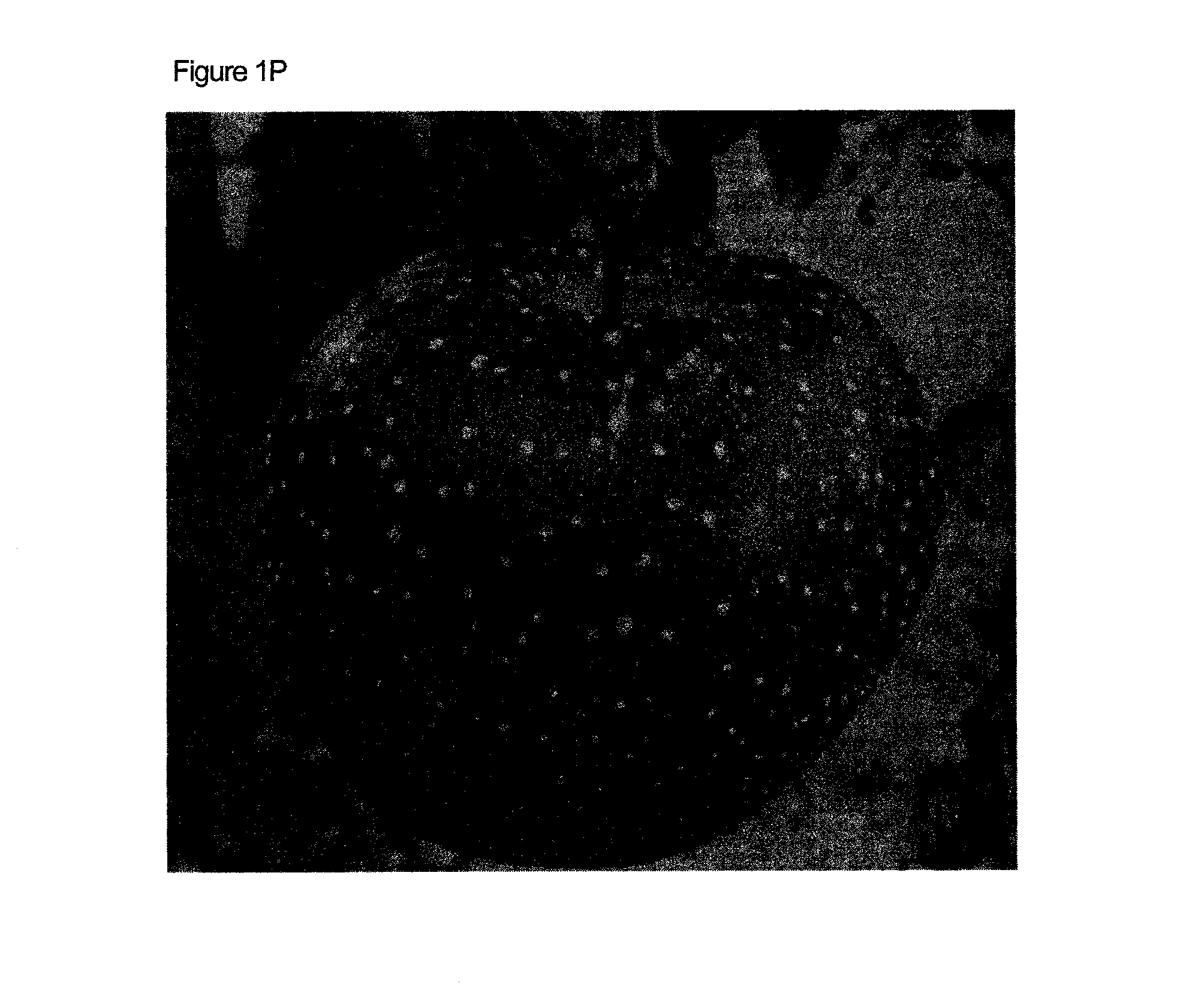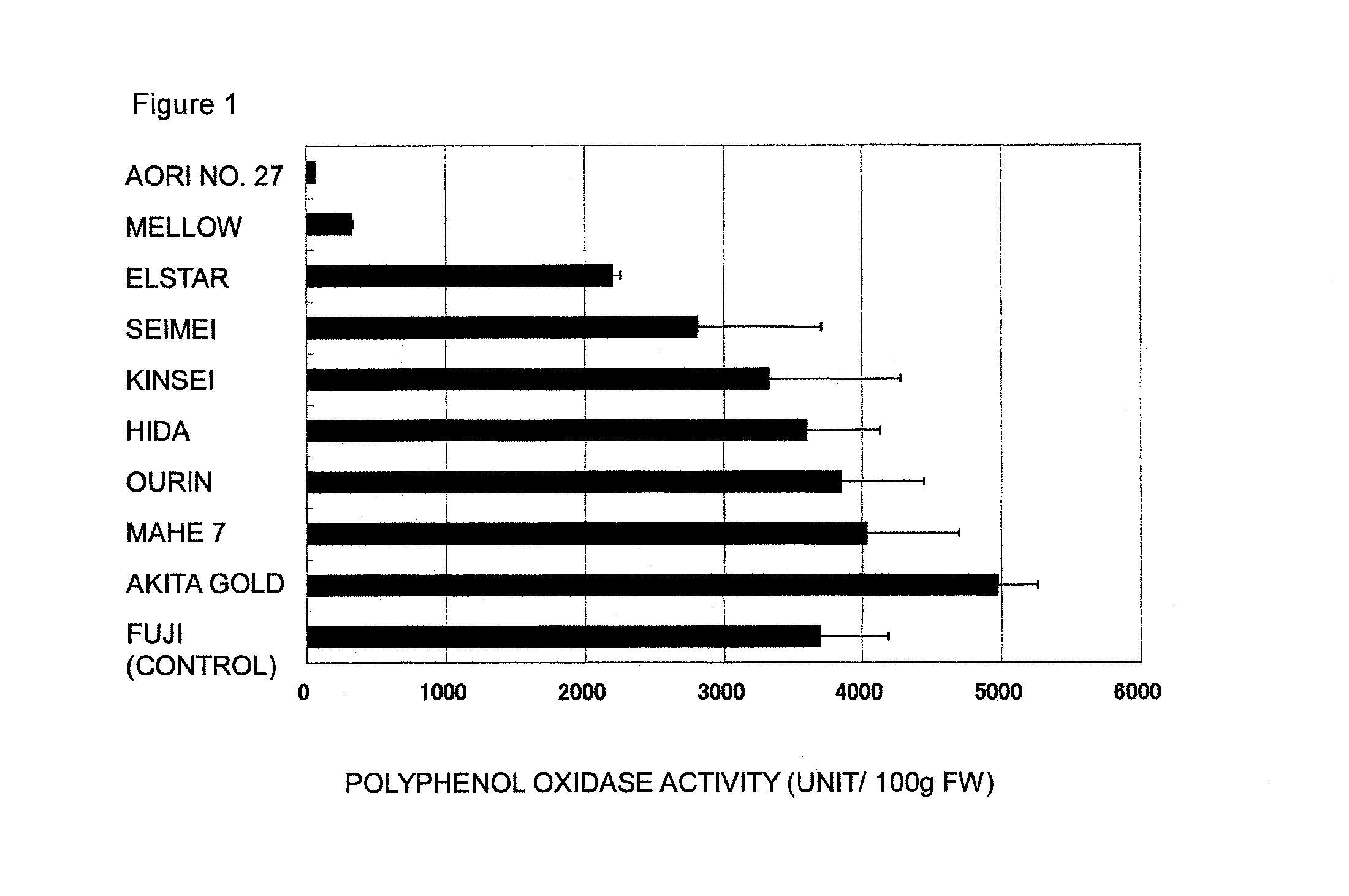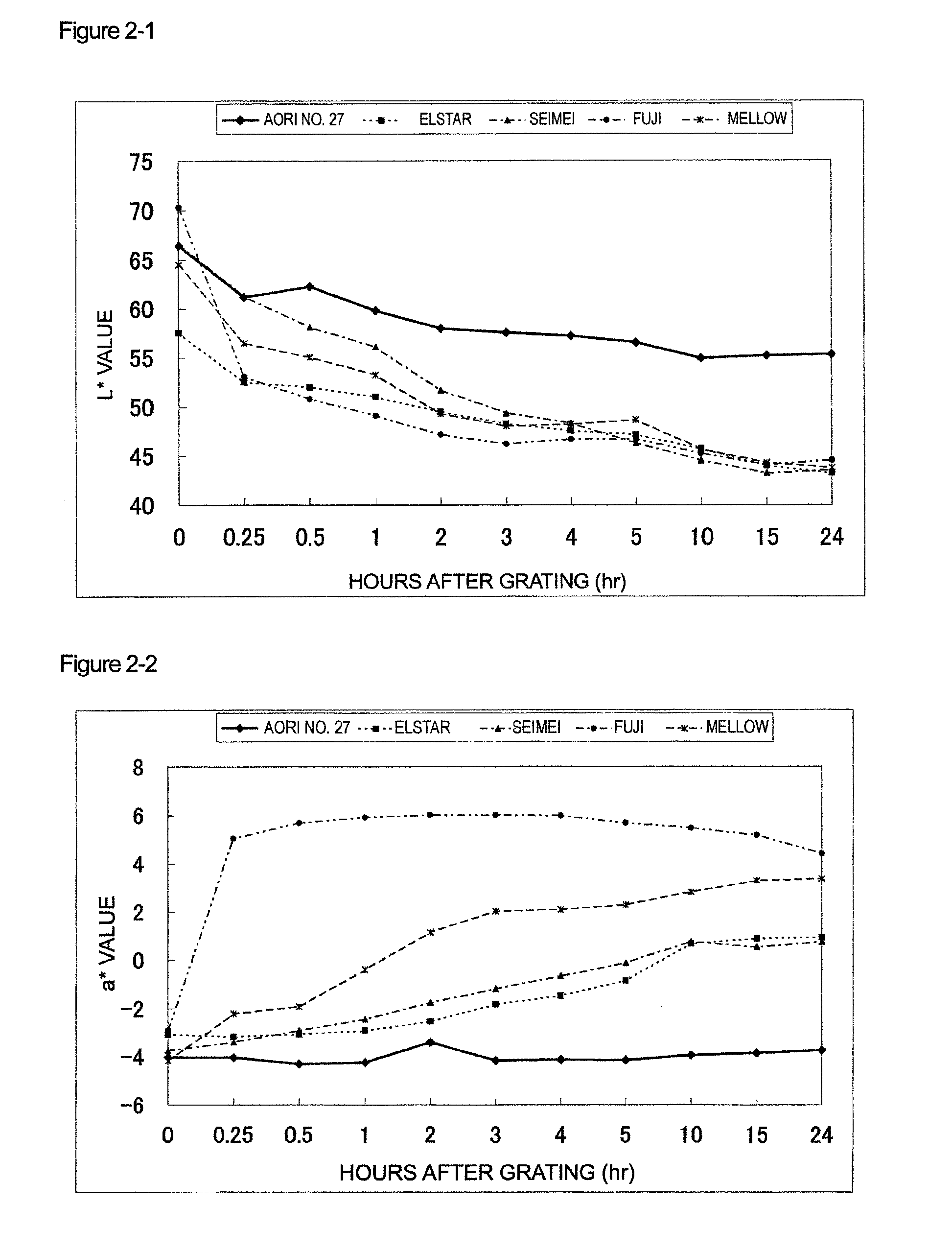Non-browning apple, method for producing the same, and drink and food using the same
a non-browning apple and method technology, applied in the field of non-browning apple, a method for producing the same, and drinks and foods using the same, can solve the natural limit of the effect of browning prevention, reduce the cost and work required therefor, and avoid or retard the generation of browning phenomenon. , the effect of reducing the cost and work required
- Summary
- Abstract
- Description
- Claims
- Application Information
AI Technical Summary
Benefits of technology
Problems solved by technology
Method used
Image
Examples
Embodiment Construction
[0081]The present invention will now be described in detail with reference to the actual process of producing a non-browning apple, general characteristics of the apply and the test results of non-browning characteristic of the apple, and the like.
[0082]A process of producing a non-browning apple “Aori No. 27” is as follows.
[0083]1) Crossing (1983): It was conducted in the combination of Kinsei and Mahe 7. It is to be noted that Mahe 7 is derived from crossing between No. 5 (Indo and Golden Delicious) and Redgold. The crossing was performed in the process of a test for breeding new apple cultivars, which test was commenced on 1970 at the Aomori Prefectural Apple Experiment Station.
[0084]2) First selection (1997): It was found in 1999 that the inventive apple did not turn brown in a physical and chemical analysis of nurtured fruits. Then, when flesh was grated and left over night, color change thereof was that the yellow color became slightly deeper than that immediately after gratin...
PUM
 Login to View More
Login to View More Abstract
Description
Claims
Application Information
 Login to View More
Login to View More - R&D
- Intellectual Property
- Life Sciences
- Materials
- Tech Scout
- Unparalleled Data Quality
- Higher Quality Content
- 60% Fewer Hallucinations
Browse by: Latest US Patents, China's latest patents, Technical Efficacy Thesaurus, Application Domain, Technology Topic, Popular Technical Reports.
© 2025 PatSnap. All rights reserved.Legal|Privacy policy|Modern Slavery Act Transparency Statement|Sitemap|About US| Contact US: help@patsnap.com



